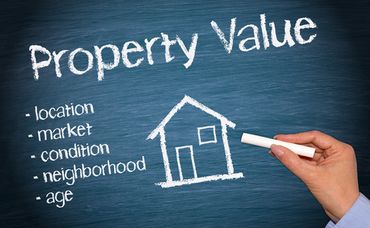 Buying a home is one of the biggest investments you’ll make, and many times new buyers worry that they’ll make a wrong decision and then be sorry when it is too late to change it. What if I paid too much for the house? What if the neighborhood isn’t what I thought it was? What if I lose my job and can’t pay the mortgage? What if I hate my neighbors? What if a better house becomes available next week/month/year?
Buying a home is one of the biggest investments you’ll make, and many times new buyers worry that they’ll make a wrong decision and then be sorry when it is too late to change it. What if I paid too much for the house? What if the neighborhood isn’t what I thought it was? What if I lose my job and can’t pay the mortgage? What if I hate my neighbors? What if a better house becomes available next week/month/year?
What-if? What-if? What-if?
Second-guessing is normal
First, you need to know that questioning your own decisions is normal. Hundreds of doubts and fears can run through your mind as you come up to the closing period during your home-buying experience. We know this expression of fear as “buyer’s remorse.” Some people have buyer’s remorse when they buy shoes, or a television, or that outfit they saw in the window. Other folks have buyer’s remorse when they purchase a car. So, if you experience buyer’s remorse for smaller purchases, expect the feeling magnify when purchasing something larger … like a car … or a house!
The grass is always greener
If your uncertainty is rooted in the idea that something better may come along next week or next month, you may never find a home to purchase. In actuality, if you create a list of your wants and needs, we can review it with you and help you find the home that fits the most important things on your list. When the uncertainty strikes, we’ll be able to review that list together to help allay your fears by reconnecting you with the reasons you chose this house in the first place. Analyzing both what you fear and what you want can help you sort through the feelings, thoughts and even doubts you’re having about moving forward.
Ways to avoid triggering buyer’s remorse
Sometimes, buyers set themselves up for experiencing doubts by falling into one of these scenarios:
- Choosing or staying with a real estate agent that does not offer guidance through the process. We answer your questions, walk you through the paperwork, explain the complete process, work out the timeline and myriad other things that help you know what to expect as your home closes. You should feel free to call your agent whenever you have concerns. It’s our job to handle those for you.
- Talking to family or friends. Of course they mean well, but sometimes family and friends can cause unnecessary doubts to creep in when they question the location, the price you’re paying for your home, the schools nearby, the type of loan you’ve chosen or any of a dozen other things. Unless they are professionals in the market you’ve chosen, their advice may be useful, but incomplete. So, take their questions to your real estate professional. We can address them based on the current market and location of the home you’re purchasing so you can buy with confidence.
- Keeping your options open. When you’ve made an offer on a home, unless there is a real chance that it will fall through (because of seller demands, loans not approved, low appraisal, problems uncovered by inspections, etc.) you should stop looking at other properties to purchase. Continuing to look is like continuing to date others after announcing your engagement.
Dealing with buyer’s remorse?
The best way to handle feelings of buyer’s remorse is to talk with your real estate professional. We can address your concerns and answer your questions. Finally, if we determine together that this isn’t the home for you after all, and we can work out the details of cancelling your contract and looking for the right home where you and your family will be happy.
Compliments of Virtual Results




